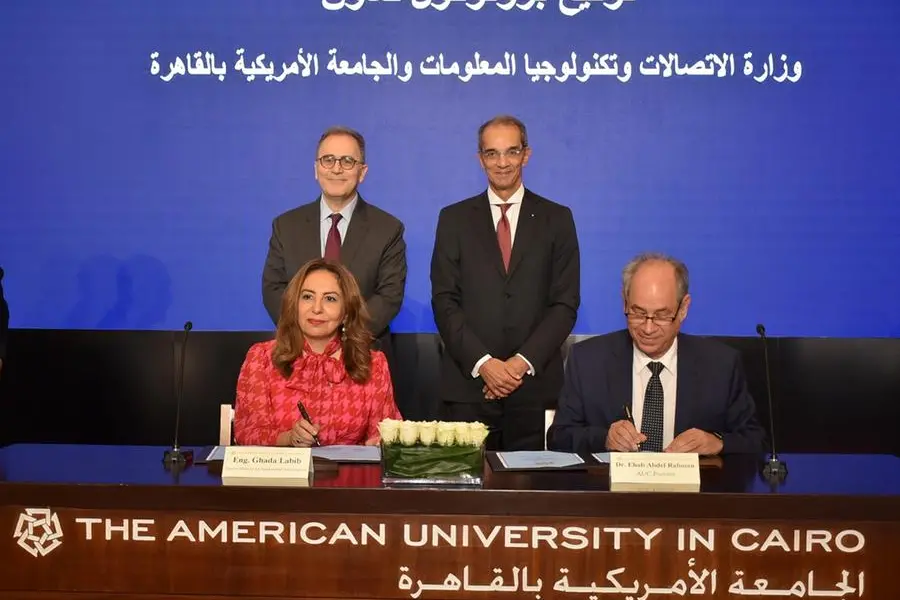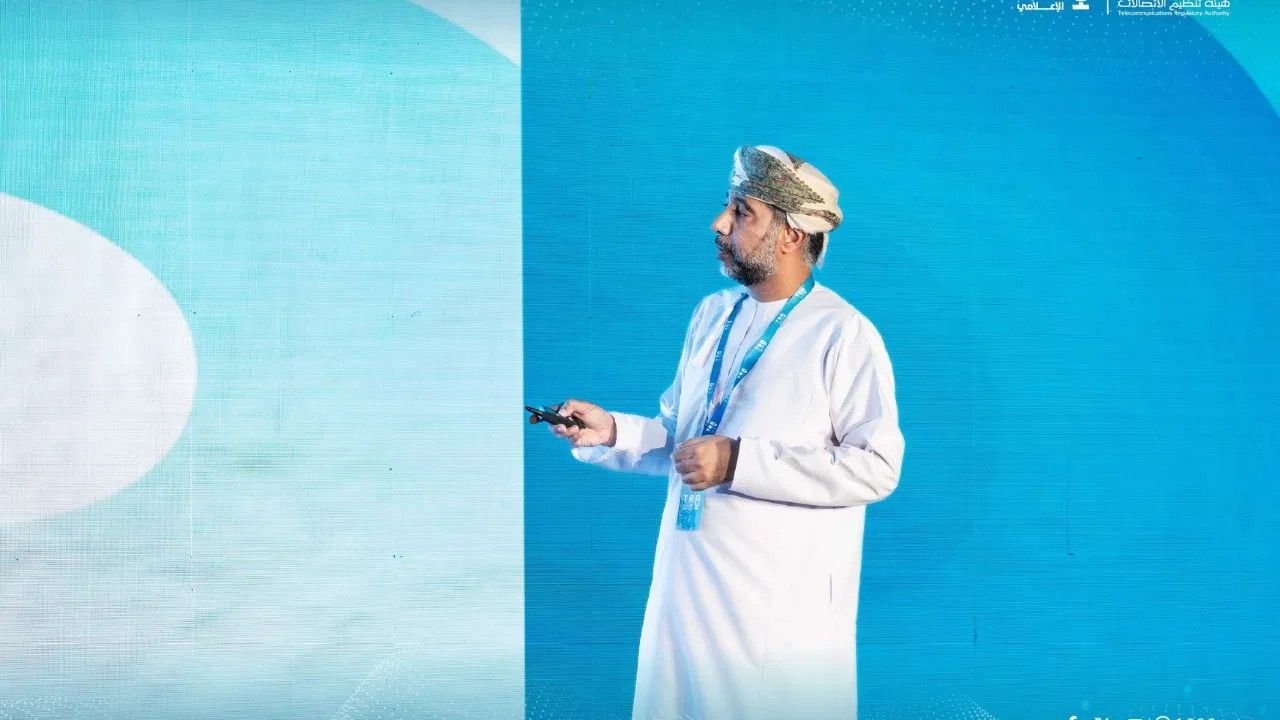The American University in Cairo (AUC) and Egypt’s Ministry of Communication and Information Technology (MCIT) have signed a protocol that signifies a new era of collaborative efforts, focusing on two major projects: the Egypt Digital Heritage Portal and an expert electronics training program for engineering students and fresh graduates.
The signing ceremony, held at AUC’s New Cairo campus, was graced by MCIT Minister Amr Talaat, AUC President Ahmad Dallal, and other key figures from the university and the ministry.
Minister Talaat emphasized the strategic importance of the partnership, particularly in implementing the Egypt Digital Heritage Portal, which reflects AUC’s academic expertise and knowledge. He also underscored the ministry’s commitment to enhancing digital capabilities among the youth through a comprehensive training program in electronic design and embedded systems software. The first cohort of the program has already seen the participation of 650 trainees, indicative of the ministry’s focus on developing key sectors like electric cars and self-driving vehicles.
AUC President Ahmad Dallal expressed pride in the university’s long-standing collaboration with the ministry, underscoring AUC’s dedication to empowering Egyptian youth with necessary skills and training, especially in communications and information technology. Dallal highlighted the university’s commitment to adapting its educational model to meet the challenges of the evolving labor market, aligning with governmental and private sector goals.
The Egypt Digital Heritage Portal project, a collaboration between MCIT and AUC Libraries, aims to digitize and make accessible Egypt’s rich cultural heritage. Lamia Eid, Interim Dean of Libraries and Learning Technologies at AUC, spoke of the library’s pivotal role in this initiative, emphasizing the significance of comprehensive metadata in enhancing scholarly research and exploration of Egypt’s cultural heritage.
The electronics training program, conducted across seven centers for electronics development in collaboration with AUC’s Center of Nanoelectronics and Devices, is set to equip engineering students and graduates with world-class training. More than 650 students have already enrolled in the program’s first batch, chosen from over 7000 applicants.
Professor Yehea Ismail, chair of the Department of Electronics and Communications Engineering and director of the Center of Nanoelectronics and Devices at AUC, who is also an adviser to Egypt’s MCIT Minister, stressed the program’s role in job creation and economic growth. The training aims to catalyze innovation by empowering engineers and fostering local startups and foreign investment.
The partnership extends beyond urban centers, aiming to implement training programs throughout Egypt, including rural areas, with live and virtual instruction from international experts. This endeavor is part of a broader strategy to establish design centers in Egypt in collaboration with leading global companies, signaling a significant step towards harnessing local talent and technological innovation.















